Your single most important activity as a planner is not in the job description: Keeping track of trends and adjusting your business to take advantage of the changes.
Here’s a look at what’s trending from six key industry players and some of the ways planners can stay ahead of the tide.
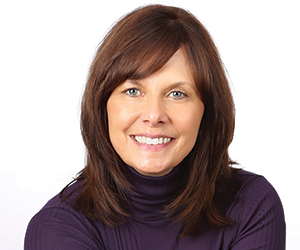
Christina Erickson, Senior Vice President, US Event Solutions
BCD Travel Meetings & Events
More so than ever, BCD Travel Meetings and Event Solutions is looking at events more strategically, according to Christina Erickson, who said all planners should do the same.
“Planners are having to elevate their business acumen because event success starts with understanding the business objectives,” she said. “Logistics and a well-run meeting where things are on time and in place are table stakes now—flawless logistics just gets you in the game. Success is designing an event or a meeting that is going to have impact because organizations are doing more with less. They have to optimize the investment they are making.”
Face-to-face meeting is part of a much larger strategy in an organization, according to Erickson, who said typically, planners are supporting a sales or marketing strategy, and that single event has a purpose with the organization.
“We are asking key questions up-front,” she said. “What are the objectives and why do they exist? What behaviors are we trying to elicit or change within an audience?
"What kind of data is available, and what can we capture or measure along the way to ensure that we know whether our desired outcomes were successful or not?”
Erickson added that understanding the audience and doing some up-front diagnostics is important.
“Where have there been some proven successes—where there might be key insights from past programs?” she said. “What is the audience makeup? We find our audiences are becoming more diverse, whether it is generational or different goals within an audience where companies are consolidating. It is understanding the audience and understanding the best way to communicate with that specific audience."
Erickson said BCD is also pushing hard on training, and one of its favorites is a new three-day immersive program at California State University, San Diego about designing events.
“This Certified Event Designer, CED, course steps away from the traditional CMP credential, which most of our planners have,” she said. “Some of our team is doing it and even some of our clients.
"It’s about rounding out a planner’s expertise so they can ensure that the plan is on target and organized, and the logistics are in place while keeping that overarching strategy in mind."
As an organization looking for different approaches, BCD also has its team reading The Medici Effect by Frans Johansson for inspiration.
“It is about stepping out of the same-old, same-old by looking at other industries and applying their best practices as an overlay to your industry,” Erickson said.
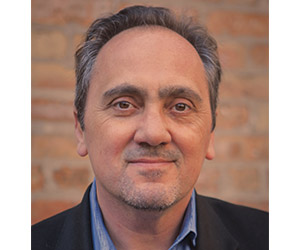
Tony Lorenz, CMM, Chief Executive Officer, AlliedPRA
Consolidation, a natural outcome of any industry that has been fragmented, will be good for the meetings industry, according to Tony Lorenz.
“Industry consolidation is going to continue, not only in hotels but also in other parts of the event space,” he said. “Consolidation is going to be increasingly prevalent in hotels, agencies, ground transportation providers and related services, technology and every other sector, other than airlines which has already seen consolidation over the past several years.
"Some companies will possibly be owned by somebody else at some point in time as those events execute."
Meanwhile, Lorenz believes an increasing level of focus will be placed on very targeted meetings and events that match buyers and sellers, which will one day be the norm for market-facing events.
“A lot gets done in one-to-one sessions between buyers and sellers, but matched encounters are much more valuable to both parties than walking around a tradeshow and hoping for the best,” he said. “Individuals with spend responsibility simply don’t have the time. And yet, face to face will never go away.
"Meeting professionals should be comfortable with those types of events, as matching between buyers and sellers through intelligent technology will be the norm in five years," he added.
Lorenz also sees select second-tier cities experiencing increased growth.
“Those cities that maybe five or 10 years ago were not as noted as prime destinations are going to get a lot more attention going forward,” he said. “Cities like Nashville, Indianapolis, Louisville, Charlotte, Austin and others are growing impressively, and will continue to do so with the rest of the industry.
"In some cases, these cities will outpace industry growth.”
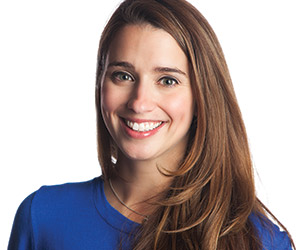
Nicole McCoy, HMCC, Director, Global Sourcing, Bishop McCann
Bishop McCann has stepped up education on venues and contracts for its clients, particularly in light of recent hurricanes, according to Nicole McCoy.
“Knowing which of the Caribbean islands have been affected by hurricanes and which have not is important,” she said. “Some resorts and entire islands are out of business, some for a few weeks, some for a year or two.
"And there are islands like Aruba that were never affected, islands that are ready and open and welcoming visitors.”
McCoy added that Bishop McCann has several hotel partners in Mexico that have moved renovations to accommodate groups that had to relocate from some of the islands.
While before the hurricanes, McCann said you would just pick some islands and dates and see who has availability, nowadays, the biggest thing is having discussions with clients on the front end and brainstorming ideas, so that as clients are engaging with their leadership, they already known which islands and resorts are going to be the best options in the timeframe they are interested in.
“That conversation has to be held before you even reach out to hotels because there are islands that don’t even come to mind that would be a great fit and haven’t been impacted by the hurricanes and the rebuilding,” she said.
Meanwhile, clients and planners are paying a lot more attention to force majeure, what that means in practical terms and exactly what they are comfortable with, according to McCann.
PageBreak“The hurricanes this past season brought the need for education home to more levels of leadership that are looking at force majeure clauses more closely,” she said.
For islands that are in a rebuilding phase, McCann said event and planning timelines will be based on construction, and planners should look for concrete milestones, not vague promises.
“If you are considering at a hotel that’s going to have a lot of rebuilding, make sure will see some milestones in your contract—things like, ‘By this date, the restaurant will be back up to speed, by that date, meeting rooms will be ready, by another date, a specific number of guest rooms will be ready for occupancy,’” she said.
“Making those milestones tells you that construction is staying on course.”
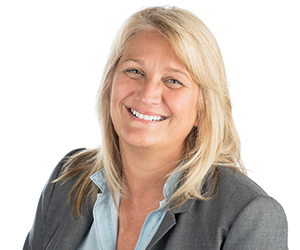
Kendra Murray, CMM, CIS, Vice President,
Meetings & Incentives, Bishop McCann
More so than ever, events and meetings and incentives are all about customization, according to Kendra Murray.
“Clients and their attendees not only want everything to be personalized for them, they want to be part of the planning experience,” she said. “Everybody wants authentic experiences, and they want to choose those experiences themselves.”
That starts with involving clients upfront and customizing the meeting from the outset, Murray added.
“Talk about what the gifts are going to be when they arrive, or if they even want gifts,” she said. “Some groups prefer to spend the attendee gift budget on a project or donation that benefits the destination community. Talk about the activities attendees are going to participate in, and work in plenty of interactive experiences.
"Clients and attendees want to feel like they are a part of the event, that they helped design it, that they helped make it a success," she added.
Having a more diverse selection of activities is also key, according to Murray.
“If we have a large group, maybe 4,000 attendees, we might have 30 or 40 different activities,” she said. “Smaller groups might just have four or five activities. Either way, when an activity fills up, it’s filled up. The idea is to make activities more intimate, more authentic and more varied.
"If you have a cattle drive, you don’t have to send all 100 attendees out on horses.”
Living like a local is another huge trend for many destinations, especially on the incentive side.
“Attendees want to do what is available in that city, not what they can do anywhere,” Murray said. “They want to be up with the latest trends, like axe throwing. It’s really popular. And if you didn’t already know that, you can do more to keep up with current trends and incorporate them into your next event.”
It’s also important for planners to keep up with what’s trending for different age groups, she added.
“That’s why personalization and customization are so important,” she said. “As a 50-year-old, I may not be interested in the same thing as some of the 25-year-old associates at an event. That’s why it’s important for planners to keep up with what’s trending in the world and in the meetings space.”
Being open-minded is also imperative nowadays, according to Murray.
“Remember that the ideas and inspiration for decor and activities aren’t necessarily in the meetings world,” she said. “You might be in a museum and see an art installation that becomes the inspiration for your client.
"Just keeping up to date is important.”
Meanwhile, collaborating with people in other industries is a great way to spark innovation, according to Murray.
“We get criticized as an industry for being stagnant, for not being disruptive, for doing things the same old way,” she said. “It’s really important to talk to people in other industries and share knowledge that we have and learn from others.”
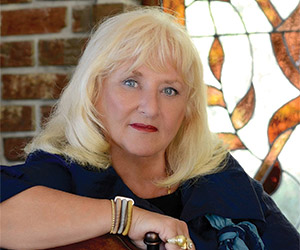
Sherry Parks, Chief Executive Officer
Corporate Planners Unlimited
Sherry Parks believes the recent Marriott commission cut was a wake-up call for planners.
“Bottom-line results are the ruling factor, and quality is suffering,” she said. “Staff are less well-trained, the front desk and reservation systems show consistent issues with confirmations, history and reservations. The food has a mediocrity, like the old rubber chicken kind of hotel food. "The largest hotel group in the country now has a mediocrity at the top levels of their brands that is affecting performance at the individual property level.”
Parks said she would look to book independent properties going forward.
“I would look to buy other brands, particularly European brands where integrity is still strong,” she said.
The reduced commission with very little notice is typical of changing vendor attitudes, according to Parks.
“There is an unbridled arrogance in the senior level management that gives little or no credence to planners, whether they are third party or in-house,” she said. “They are pushing everything, and you have to be careful.”
Parks said it’s important to have your contracts rewritten in plain English so there are no areas of grey.
“Be very detail-conscious, and stay on top of people in a written format for every direction you give,” she said. “This paying 3 percent less on 30 days’ notice is a very strong indication of the lack of caring going on.”
It’s not just hotels, Parks added.
“United is now charging for all bags in economy,” she said. “That’s coming with all the carriers. If you are doing air and estimated $425 per person, and now you suddenly have to add $25 to $50 per person for a meeting, that becomes a big-ticket item. That’s a major lunch or a couple of breaks.
"That one announcement means that United won’t get my vote if there is an alternative carrier.”
Parks’ overall advice?
“Read the fine print, put everything in writing and record your phone calls,” she said.
“You have to protect yourself and your clients.”
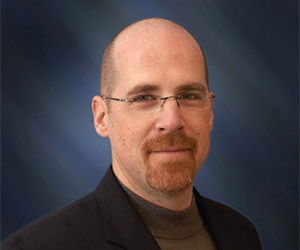
Brian Scott, Chief Information Officer
Experient
Technology providers have to become a lot more savvy about data analysis and trying to identify the real interests of attendees, according to Brian Scott.
“Vendors have a lot of initiatives around that, trying to support marketing products with some kind of analytics that can identify attendee interests so they can market in a more targeted way or create better networking opportunities between exhibitors and attendees or attendees and attendees, based on behavioral analysis,” he said. “That’s pretty big demand, and I don’t see that changing any time in the near future.”
While Scott doesn’t believe thinking experientially has been a new trend, he sees a significant uptake in experiential content.
“That’s where customers are looking for technology,” he said. “How are technology vendors going to make the experience more rewarding for attendees?”
Scott said Experient is looking at things like artificial intelligence on-site, possibly using a mobile app, that lets attendees ask any question, perhaps by speech recognition, and reply in an intelligent way based on behavioral analysis.
“Until now, recommendations on attending sessions have been based largely on sponsorship,” he said.
“It has had very little to do with looking at what the attendee’s true interest is, what sessions they have attended or what exhibitors they have searched with their mobile app—something indicating where their interests are and then trying to personalize the experience based on that.”
With technology advancing at warp speed, Scott said ultimately, planners must be more focused to understand what is available in that space.





